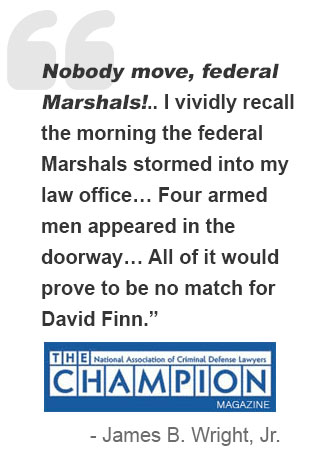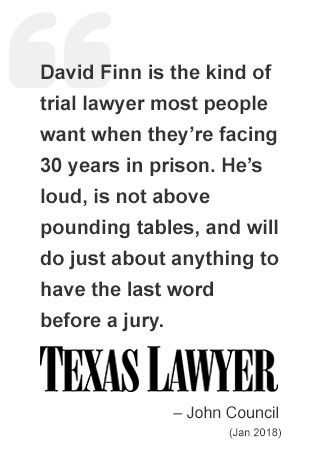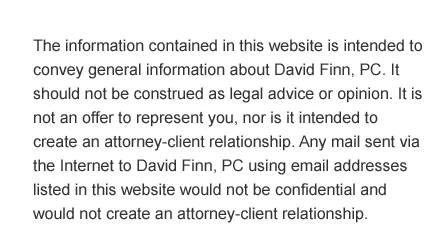


Library of Motions – Motion To Quash Indictment And Exception For Failure To Provide Sufficient Notice Of Crimes Charged
CAUSE NO. F02-83999
| STATE OF TEXAS
VS. DAMON DEWIS |
IN THE DISTRICT COURT
291st JUDICIAL DISTRICT DALLAS COUNTY, TEXAS |
MOTION TO QUASH INDICTMENT AND EXCEPTIONS FOR FAILURE
TO PROVIDE SUFFICIENT NOTICE OF CRIMES CHARGED
TO THE HONORABLE SUSAN HAWK, JUDGE OF SAID COURT:
Defendant Damon Dewis excepts to and moves for an order quashing the Indictment in this case because the Indictment violates his rights to receive fair and particularized notice of the charges against him under Texas law, the Texas Constitution, and the Constitution of the United States. In support, Defendant would respectfully show as follows:
I. INDICTMENT
This Indictment alleges that Damon Dewis did “intentionally, knowingly, and recklessly pursuant to one scheme and continuing course of conduct, misapply property, i.e., deal with property, to wit: money… which the defendant held as a fiduciary contrary to an agreement under which the defendant held the said property an in a manner that involved substantial risk of loss to Mark Swisher, the owner of the said property and the person for whose benefit the said property was held.”
This Indictment does not explain how Defendant allegedly misapplied the property, nor does it allege with reasonable certainty the act or acts relied on to constitute the forbidden conduct committed with recklessness. This information is essential to fair notice of the charges against Defendant. Consequently, the Indictment must be quashed.
II. THE COURT SHOULD QUASH THE INDICTMENT
A. The Indictment is Insufficient Under Texas Law.
1. Texas Law Requires That The Indictment Sufficiently Describe The Alleged Criminal Conduct.
Texas law guarantees an accused the right to have an indictment present fair notice of the charges against him. Article I, Section 10, of the Texas Constitution provides that, “[i]n all criminal prosecutions the accused…shall have the right to demand the nature and cause of the accusation against him, and to have a copy thereof.” Additionally, Articles 21.04 and 21.11 of the Texas Code of Criminal Procedure require that an indictment must contain “that degree of certainty that will give the defendant notice of the particular offense with which he is charged” and “enable the accused to plead the judgment that may be given upon it in bar of any prosecution for the same offense.” Tex. Code Crim. Proc. Ann. arts. 21.04, 21.11 ( Vernon 1989).
The en banc Texas Court of Criminal Appeals has recognized that the requirement that indictments give adequate notice implicates “fundamental notions of fairness.” Drumm v. State, 560 S.W.2d 944, 946 (Tex.Crim.App. 1977) (en banc). Accordingly, “[t]he accused is not required to anticipate any and all variant facts the state might hypothetically seek to establish.” Id. at 947.
Texas law, therefore, requires that indictments charge a crime with sufficient particularity. In Terry v. State, 471 S.W.2d 848 (Tex.Crim.App.1971), for example, the Court considered the notice provided from the face of the indictment and found it insufficient. In reaching its determination, the Court noted: “There is nothing in this indictment to inform the accused of the specific acts he is alleged to have committed to commit this offense. It is only by speculation and by looking outside the indictment that the accused can determine the acts with which he is charged.” Id. at 851-852; see alsoMcElroy v. State, 720 S.W.2d 490,492 (Tex.Crim.App.1986) (holding that an indictment must “particularize the act complained of so that its identity cannot be mistaken”). Moreover, merely tracking statutory language is not sufficient if the statutory language itself does not provide fair notice of the particular alleged conduct at issue. SeeHaecker v State, 571 S.W.2d 920, 921 (Tex. Crim. App. 1978) (reversing conviction because the charging instrument did not specify how the defendant allegedly “torture[d]” an animal).
Texas law also clearly requires that the notice of the charges must come from the face of the indictment alone. Riney v. State, 28 S.W.3d 561, 565 (Tex.Crim.App. 2000); Miller v. State, 909 S.W.2d 586, 591 (Tex.App.-Austin, 1995); Voelkel v. State, 501 S.W.2d 313, 315 (Tex.Crim.App.1973); See, e.g., Benoit v. State, 561 S.W.2d 810,813 (Tex.Crim.App. 1977). It is, of course, not sufficient to argue that the accused knew with what offense he was charged; rather, the inquiry must be whether the face of the indictment furnished that information in plain and intelligible language. Miller at 591; Benoit at 813; Riney at 565. Moreover, it is improper to look to the record of the case in order to determine whether the charging instrument constitutes adequate notice. Adams v. State, 707 S.W.2d 900,901 (Tex.Crim.App. 1986), citing Bonner v. State, 640 S.W.2d 601 (Tex.Crim.App.1982).
2. The Indictment Does Not Provide Sufficient Notice Under Texas Law.
In this case, the Indictment does not provide sufficient notice under Texas law in at least the ways set forth below. In these circumstances, a motion to quash is the appropriate procedural vehicle by which to correct the inadequacies of the Indictments. See Drumm v. State, 560 S.W.2d 944, 946 (Tex. Crim. App. 1977).
a. Failure to identify the conduct sufficiently.
The Indictments does not describe how or why the Government contends that the Defendant misapplied property. Nor dies it specify how Defendant’s alleged conduct violated an agreement that he is alleged to have had with Mark Swischer. This failure to particularize the alleged misapplication or violation of an agreement is fatal to the Indictment.
In Amaya v. State, 551 S.W.2d 385 (Tex. Crim. App. 1977), for example, the Court of Criminal Appeals reversed a conviction for making a false statement because the charging instrument merely tracked the statutory language and made “no attempt to set out the specific ‘willfully false statement’ the [defendant] was alleged to have made.” Id. at 386. In reversing the conviction, the Court concluded that the defendant “was entitled, upon proper exception, to know which false statement or statements the State would rely upon for conviction.” Id. at 387.
Similarly, in Cooke v. State, 824 S.W.2d 334 (Tex. App.—Houston [1 st Dist.] 1992, pet. ref’d), the court reversed a conviction for tampering with government records under Tex. Penal Code Ann. § 37.10(a)(2). The indictments simply tracked the statutory language and alleged that the defendant did “knowingly make and present a record, document, and thing…with knowledge of its falsity….” The defendant filed a motion to quash the indictments, because they did not identify which entry or entries in the documents were allegedly false. The appellate court held that the trial court’s denial of the motion to quash was reversible error because the defendant “was forced to speculate which particular entry might form the basis of the prosecutor’s case.” Id. at 338.
In this case, the Court should quash the Indictment because the failure of the Indictment to provide notice of how the Defendant allegedly misapplied property constitutes inadequate notice of the charges against Mr. Loses. There is simply no way to tell from the Indictment what the Government claims constitutes a misapplication of property or the manner and means by which the alleged misapplication involved a substantial risk of loss to Mark Swischer.
b. Failure to adequately describe “manner and means”.
The Indictment charges that the defendant misapplied property. It does not state or describe how Defendant allegedly misapplied this property. In Cruise v. State, 587 S.W.2d 403 (Tex. Crim. App. 1979), the Court of Criminal Appeals reversed a conviction for the offense of robbery by causing bodily injury because the indictment did not specify “the way in which he did so,” that is, how the defendant allegedly caused the bodily injury—whether by his fists, by kicking, by shooting, or the like. Id. at 404. The Court concluded that “the trial court committed reversible error in refusing to order the State to disclose such facts when confronted with appellant’s motion to quash the indictment.” Id. The Court should therefore quash the Indictments.
c. Failure to specify reckless misconduct.
Article 21.15 of the Texas Code of Criminal Procedure states, in relevant part, that whenever recklessness enters into or is a part or element of any offense, or it is charged that the accused acted recklessly in the commission of an offense, the indictment in order to be sufficient in any such case must allege, with reasonable certainty, the acts or acts relied upon to constitute recklessness, and in no event shall it be sufficient to allege merely that the accused, in committing the offense, acted recklessly.
In affirming a district court’s decision to quash an indictment for failure to comply with the requisites of Article 21.15, the Court of Criminal Appeals recently held that the allegation of the acts or circumstances on which the State relies to demonstrate that the forbidden conduct was committed recklessly is necessary for a valid charging instrument. State v. McCoy, 64 S.W.3d 90, 94 (Tex.Crim.App. 2001). The absence of such an allegation is a substantive defect. Id., citing Gengnagel v. State, 748 S.W.2d 227, 229 (Tex.Crim.App.1988). And it is not sufficient to say that the accused k new with what offense he was charged. The inquiry must be whether the charge, in writing, furnished that information in plain and intelligible language. Benoit v. State, 561 S.W.2d 810, 813 (Tex.Crim.App. 1977); Riney v. State, 28 S.W.3d 561, 565 (Tex.Crim.App.2000).
B. The Indictment is Insufficient Under The United States Constitution.
1. The United States Constitution Requires That The Indictment Sufficiently Describe The Alleged Criminal Conduct.
The Sixth Amendment to the United States Constitution provides that, “[i]n all criminal prosecutions, the accused shall enjoy the right…to be informed of the nature and cause of the accusation.” The Due Process Clause of the Fourteenth Amendment guarantees Defendant Lewis the right to due process and makes the Sixth Amendment right to notice applicable to state prosecutions. Pointer v. Texas, 380 U.S.400, 85 S.Ct.1065, 1067-1068, 13 L.Ed.2d 923 (1965). The Indictment in this case violates those rights.
With respect to a defendant’s rights under the United States Constitution, the United States Supreme Court has consistently held that one of “the criteria by which the sufficiency of an indictment is to be measured” is whether it “’sufficiently apprises the defendant of what he must be prepared to meet.’” Russell v. United States, 369 U.S. 749, 763, 82 S.Ct. 1038, 1047 (1962) (quoting Cochran v. United States, 157 U.S. 286, 290, 15 S.Ct. 628, 630 (1895)). As the Supreme Court has held, a mere recitation of the elements of a crime or the tracking of statutory language may not sufficiently apprise a defendant of the charges against him. Accordingly, “’[i]t is an elementary principle of criminal pleading, that where the definition of an offence [sic], whether it be at common law or by statute, ‘includes generic terms, it is not sufficient that the indictment shall charge the offence [sic] in the same generic terms as the definition; but it must descend to the particulars.’’” Russell, 369 U.S. at 765, 82 S.Ct. at 1047 (quoting United States v. Cruikshank, 92 U.S. 542, 558 (1895)). Thus, in addition to statutory language and generic terms, an indictment “’must be accompanied by such a statement of facts and circumstances as will inform the accused of the specific offense, coming under the general description, with which he is charged.’” Russell, 369 U.S. at 765, 82 S.Ct. at 1048 quoting United States v. Hess, 124 U.S. 483, (1888)). An indictment that fails to apprise the defendant of the charge against him “’with reasonable certainty’” is constitutionally “’defective.’” Russell, 369 U.S. at 765, 82 S.Ct. at 1047 (quoting United States v. Simmons, 96 U.S. 360, 362 (1977)).
2. The Indictment Does Not Provide Constitutionally Sufficient Notice.
The Indictment in this case is deficient under the United States Constitution for each of the reasons set forth above in subsection A(2), and in particular, because of the failure to explain the alleged “misapplication” of property. Federal courts have consistently held that indictments such as these do not provide adequate notice to the accused.
In Russell, for example, the Supreme Court reversed convictions in circumstances similar to these. Russell involved prosecutions for refusal to answer questions before a congressional subcommittee. The relevant statute, 2 U.S.C. § 192, criminalized a refusal to answer a question that was “pertinent to the subject under inquiry” by the subcommittee. The indictments identified the particular questions asked. They also tracked the statutory language and averred that the questions were “pertinent to the subject matter under inquiry.” The indictments failed, however, to “identify the subject which was under inquiry at the time of the defendant’s alleged default or refusal to answer.” Russell, 369 U.S. at 754, 82 S.Ct. at 1041 (emphasis added). The Supreme Court held that the failure to identify or describe the subject matter under inquiry rendered the indictments fatally defective because they did not sufficiently apprise the defendants of the charges against them. See id. at 768-69, 82 S.Ct. at 1049-1050.
The Supreme Court also specifically rejected the argument that a bill of particulars could have cured the defects. As the Court pointed out, “[i]t is a settled rule that a bill of particulars cannot save an invalid indictment.” See id. at 770, 82 S.Ct. at 1050. In particular, the Supreme Court emphasized that, in order to return an indictment, the grand jury must have determined “what the question under inquiry was.” Id. But permitting a prosecution based on an indictment that did not identify this element would have violated the defendants’ constitutional rights. As the Court explained:
To allow the prosecutor, or the court, to make a subsequent guess as to what was in the minds of the grand jury at the time they returned the indictment would deprive the defendant of a basic protection which the guaranty of the intervention of a grand jury was designed to secure. For a defendant could then be convicted on the basis of facts not found by, and perhaps not even presented to, the grand jury which indicted him.
Id.
Other appellate decisions have reached similar results and dismissed indictments that failed to provide an adequate description of the core allegation against the defendant. See, e.g., United States v. Murphy, 762 F.2d 1151, 1154 (1 st Cir. 1985) (reversing conviction and dismissing indictment that did not
adequately inform defendants of which proceeding they allegedly attempted to influence); United States v. Salisbury, 983 F.2d 1369, 1375-76 (6 th Cir. 1993) (indictment was invalid because it failed adequately to specify the activities that allegedly constituted voting more than once).
C. The Court Should Quash The Indictment.
Under the authorities cited above, the Indictment fails to provide adequate notice of the charges against Defendant Dewis. In this case, the State presumably knows exactly what it claims Defendant Loser did to misapply property. The State supposedly did and knows exactly what it presented to the grand jury and knows exactly what it intends to try to prove at trial. With minimal effort, the State can easily identify and describe the crimes it claims Defendant Lewis committed and eliminate any possible perception that it is simply trying to hide the ball. The Court should enforce Defendant Louises’ rights under Texas and federal law, sustain his exceptions, and grant this Motion to Quash.
III. CONCLUSION
Defendant Damon Cruiser respectfully requests that the Court sustain his exceptions and quash the Indictment for the reasons set forth herein.
Dated: May 2, 2006
| By: | |
| MILNER & FINN David Finn State Bar No. 07026900 International Center-IV 2828 North Harwood Street Suite 1950, LB 9 Dallas, TX 75201 (214) 651-1121 (214) 953-1366 (fax) |
Attorney for Damon Dewer
CERTIFICATE OF SERVICE
I hereby certify that a true and correct copy of the foregoing Motion has been HAND-DELIVERED to Ms. Tina Yoo, Assistant District Attorney, Dallas County, Texas on the this the 14 th day of May, 2004.
______________________________
David Finn
Phone Numbers
Office: (214) 538-6629







